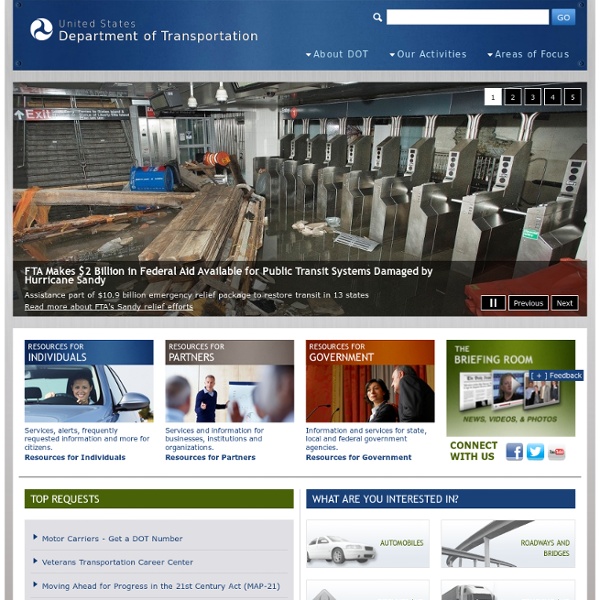



U.S. Department of Veterans Affairs Home | Federal Highway Administration Department of Justice April 17th, 2014 April 16th, 2014 March 14th, 2014 March 11th, 2014 Monday, April 21, 2014 Press Release Thursday, April 17, 2014 Speech Dept. of Justice Overview Tues., September 29 Attorney General Eric Holder, Deputy Attorney General David W. FRA | Home Department of Commerce Research and Innovative Technology Administration (RITA) - United States Department of Transportation (USDOT, US DOT or DOT) Data.gov Data.gov is the federal government’s open data site, and aims to make government more open and accountable. Opening government data increases citizen participation in government, creates opportunities for economic development, and informs decision making in both the private and public sectors. Data.gov implements the Executive Order on making government data open and machine readable as well as the federal Open Data Policy. Open Source Data.gov was built with open source software, CKAN, and WordPress. Open Data in the United States Numerous states, cities and counties have launched open data sites. By collaborating with these non-federal data sources, Data.gov is able to include this data in the catalog. U.S. International Countries International Regions Download the full list of open data sites: [CSV] | [EXCEL] List Views: [U.S. Map representation of Open Data Sites
Border Security, Economic Opportunity, and Immigration Modernization Act (S. 744 Prohibits an employer from: (1) hiring, recruiting, or referring for a fee an alien who is not authorized to work in the United States or failing to comply with E-Verify or document requirements; or (2) continuing to employ an unauthorized alien. Authorizes an employer to rely on a state employment agency's referral of an employee if the agency has certified that it has complied with document requirements. Provides a good faith defense for an employer who has complied with document and E-Verify requirements. Requires an employer to: (1) examine specified documents to verify an individual's identity and employment status and use an identity authentication mechanism once it becomes available, and (2) retain verification records for the later of three years after hiring or one year after termination. Requires an employee to provide an employer with such documents and attest that he or she is authorized to work in the United States. Sets forth employer penalties and civil rights protections.